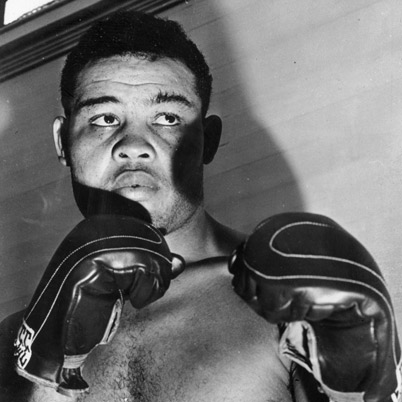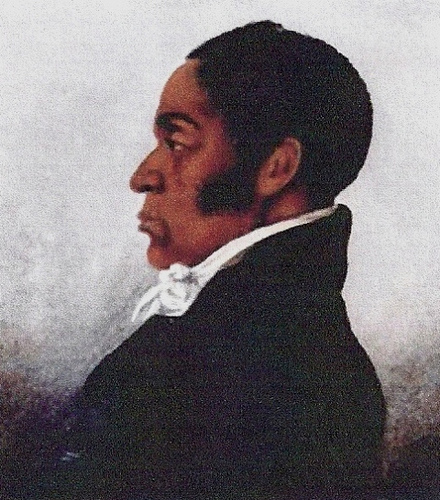Boxer. Widely considered one of the greatest and most beloved boxers in the sport’s history, Joseph Louis Barrow was born May 13, 1914 in the cotton-field country near Lafayette, Alabama. The son of a sharecropper, and the great-grandson of a slave, he was eighth child of Munn and Lilly Barrow. Louis’s family life was shaped by financial struggle. The Louis kids slept three to a bed and Louis’ father was committed to a state hospital when he was just two years old. Louis had little schooling and as a teen took on odd jobs in order to help out his mother and siblings. The family eventually relocated to Detroit where Louis found work as a laborer at the River Rouge plant of the Ford Motor Company. For a time Louis set his sights on a career in cabinet making. He briefly attended the Bronson Vocational School for training and in his off-time took violin lessons. But it was while at school that a friend recommended he try boxing. While not an immediate success—he debuted as a lightweight and was knocked down three times in his first fight—he showed promise. By 1934 he held the national Amateur Athletic Union light-heavyweight title and finished his amateur career with an astonishing 43 knockout victories in 54 matches.
Louis bruised his opponents with a crushing left jab and hook. By the end of 1935 the young fighter was showing that his amateur success was no fluke. He fought 14 bouts that year, earning nearly $370,000 in prize money. On June 19, 1936 Louis suffered his first professional defeat, a 12th round knockout to Max Schmeling, a German fighter and former heavyweight champion who’d earned the adoring praise of Adolph Hitler. The defeat stung Louis, but it was offset by the chance to fight Jim Braddock on June 22, 1937 for the heavyweight crown. The Brown Bomber, as he came to be known, knocked out the defending champ in the eighth round setting the stage for a 12-year-run as the heavyweight king all the while becoming a sports icon for blacks and white across America. Part of it could be chalked up to the sheer fact that fans loved a winner. Of Louis’ 25 title defenses, only three went the full 15 rounds. But in winning, Louis also showed himself to be a gracious, even generous victor. Louis, who enlisted with the army in 1942, threw his support behind the country’s war effort, and went so far as to twice donate his purse money to military relief funds. He officially retired on March 1, 1949. A short-lived comeback, owed more in part because he was broke, soon followed. But Louis failed to capture his earlier magic. On October 26, 1951 he called it quits for good after Rocky Marciano knocked him out in the eighth round at Madison Square Garden.
The years after his retirement from the ring proved uneven for Louis. He was still a revered American figure, but money was a constant issue for him. In an effort to find some footing he tried out a number of careers. He wrestled and partnered with a rival in setting up a chain of interracial food shops. In 1970 his wife Martha committed Louis to a psychiatric hospital in Colorado because of his cocaine addiction and paranoia. He was later confined to a wheelchair following surgery to correct an aortic aneurism. When he passed away from a heart attack on April 12, 1981, Louis, who married four times in his life and had two children, was working as an “official greeter” at Caesars Palace. Louis was inducted to the Ring Magazine Boxing Hall of Fame in 1954 and the International Boxing Hall of Fame in 1990. In 1982 he was posthumously awarded the Congressional Gold Medal.








